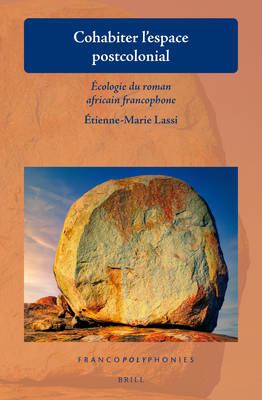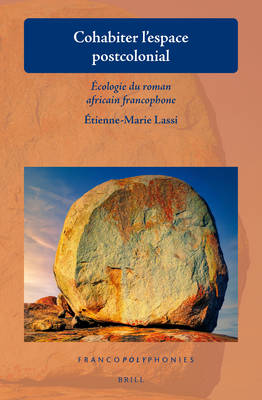
- Afhalen na 1 uur in een winkel met voorraad
- Gratis thuislevering in België vanaf € 30
- Ruim aanbod met 7 miljoen producten
- Afhalen na 1 uur in een winkel met voorraad
- Gratis thuislevering in België vanaf € 30
- Ruim aanbod met 7 miljoen producten
Zoeken
€ 140,45
+ 280 punten
Omschrijving
Cohabiter l'espace postcolonial s'interroge essentiellement sur les enjeux écologiques dans le roman africain en français. Cet ouvrage met en lumière les stratégies complexes et diverses par lesquelles les questions environnementales s'inscrivent dans la fiction. Recourant à l'écocritique, aux théories postcoloniales et posthumanistes pour analyser un corpus romanesque large et varié, il mène le lecteur, à travers la diversité des problématiques abordés, à la découverte des nuances contextuelles du rapport entre l'humain et le non-humain. De la précarité du monde rural à la survie en milieu urbain et autres écosystèmes hostiles, en passant par l'altérité animale, l'importance du végétal, le racisme environnemental et la justice environnementale, ce livre montre comment, à l'échelle de la localité, les questions écologiques se déclinent en réels défis socioculturels et politiques.
Cohabiter l'espace postcolonial focuses on the importance of ecological issues in African fiction. The book highlights the complex and diverse strategies deployed in French speaking Africa to incorporate environmental subjects in literary productions. Using ecocriticism, postcolonial and posthumanist theories to analyse a wide variety of novels, it brings to the fore, through the diversity of the issues it addresses, some contextual inflections of the relationship between the human and the non-human. From its discussion of animal otherness, cultural significance of plants, environmental racism, environmental justice, the fragility of the rural world and the survival in urban environments, the book demonstrates how ecological issues translate into socio-cultural and political challenges for local communities in Africa.
Cohabiter l'espace postcolonial focuses on the importance of ecological issues in African fiction. The book highlights the complex and diverse strategies deployed in French speaking Africa to incorporate environmental subjects in literary productions. Using ecocriticism, postcolonial and posthumanist theories to analyse a wide variety of novels, it brings to the fore, through the diversity of the issues it addresses, some contextual inflections of the relationship between the human and the non-human. From its discussion of animal otherness, cultural significance of plants, environmental racism, environmental justice, the fragility of the rural world and the survival in urban environments, the book demonstrates how ecological issues translate into socio-cultural and political challenges for local communities in Africa.
Specificaties
Betrokkenen
- Auteur(s):
- Uitgeverij:
Inhoud
- Aantal bladzijden:
- 210
- Taal:
- Frans
- Reeks:
- Reeksnummer:
- nr. 33
Eigenschappen
- Productcode (EAN):
- 9789004543621
- Verschijningsdatum:
- 11/04/2023
- Uitvoering:
- Hardcover
- Formaat:
- Genaaid

Alleen bij Standaard Boekhandel
+ 280 punten op je klantenkaart van Standaard Boekhandel
Beoordelingen
We publiceren alleen reviews die voldoen aan de voorwaarden voor reviews. Bekijk onze voorwaarden voor reviews.








